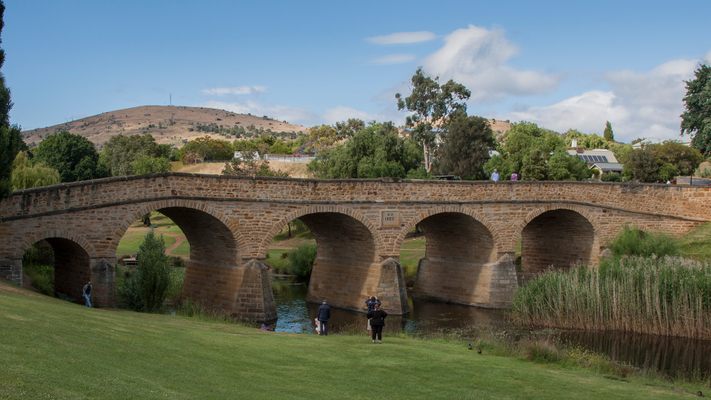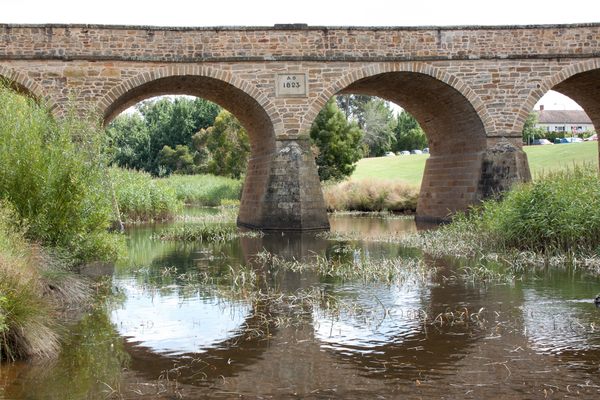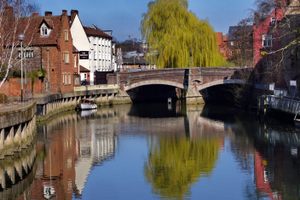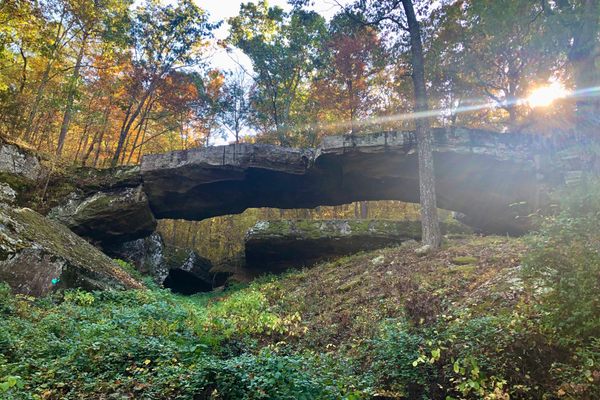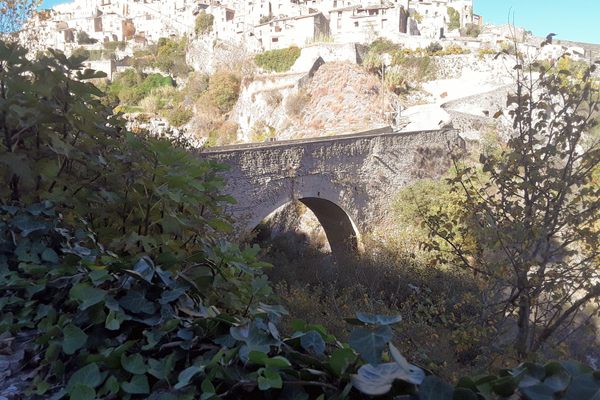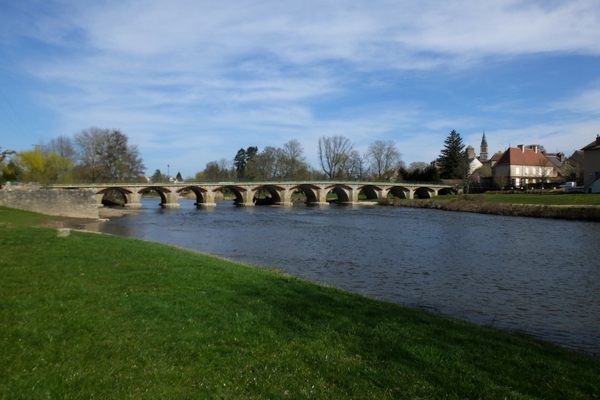About
Bridges are commonplace, so what makes the Richmond Bridge in Tasmania such a unique destination? It has the distinction of being Australia's oldest existing stone arch bridge. Bigge's Bridge was named after Royal Commissioner John Thomas Bigge, who suggested the bridge's construction in 1820.
It was constructed by incarcerated laborers, men imprisoned in the nearby Richmond Gaol, which was a regular practice at the time for big construction and road projects. These incarcerated workers were forced to mine sandstone from nearby Butchers Hill and deliver it to the site using carts.
The start of bridge construction cemented Richmond as an important town in the settlement of Van Diemen's Land, not just as a farming area. The village was bustling as private dwellings and two inns were built. In January 1825, the Richmond Bridge was built and opened. The whole length was 41 meters (135 feet), while the breadth was 7.5 meters (25 feet). It possessed the largest span of any bridge in Australia at the time, and it retained that record until 1836. Brown Triassic sandstone was used to build it.
The construction was superb, and the bridge has lasted nearly 200 years with relatively minor maintenance. It was built to accommodate wheat carts, but it's still in service today, carrying significantly heavier vehicles.
The ghost of George Grover is one of the many mysteries surrounding the bridge. George was brought to Tasmania as a convict and was later made a flagellator and put in charge of a group of convicts who were repairing the bridge's piers. George was an unlikable figure, even for a flagellator. He was believed to ride on the sandstone carts that convicts dragged from Butchers Hill, flogging them as if they were horses. There have been many reported sightings of George Grover's ghost peering out from the western side of the Richmond Bridge. The ghost of George Grover's dog is reported to wander besides individuals who cross the bridge at night.
Thousands of people visit the Richmond Bridge each year. Unlike many historic sites, there is no barrier preventing you from accessing the entire site. In fact, you can walk right over it and under the outer arches. There is no one there to collect an admission ticket; the bridge is open at all hours and is free to enter.
Both sides of the river have grassy riverbanks, which offer a lovely site for a picnic and feeding the ducks. On the south side, there are two huts with gas barbecues, or you may buy lunch from one of the neighbouring cafés and enjoy it on the riverside while admiring the view. A viewing platform on the south side is a popular spot for tourists and wedding couples from the nearby St John's Church to take photos. There's also a trail along the riverbank where you may walk and observe the tranquilly.
Related Tags
Community Contributors
Added By
Published
September 7, 2021

